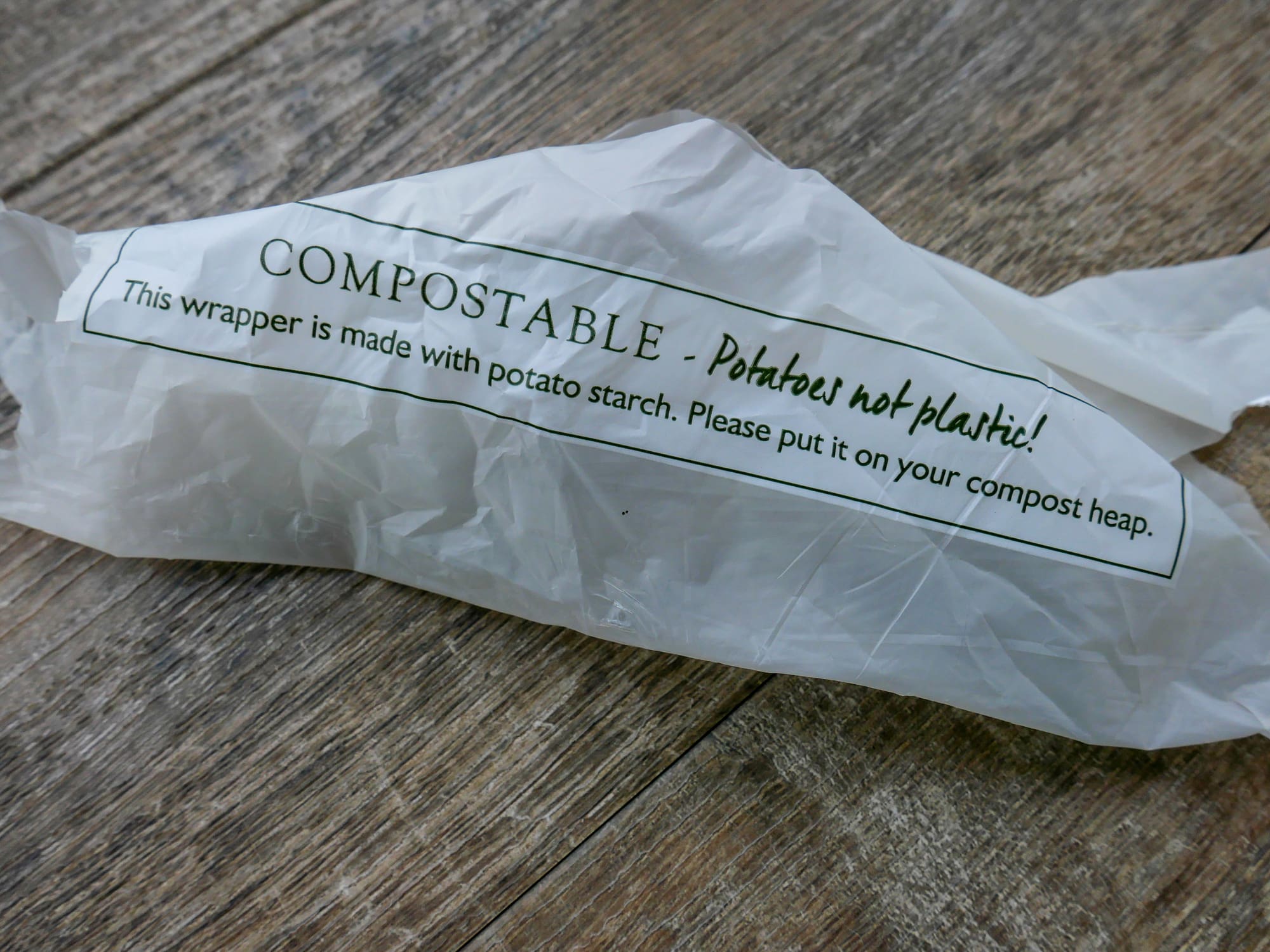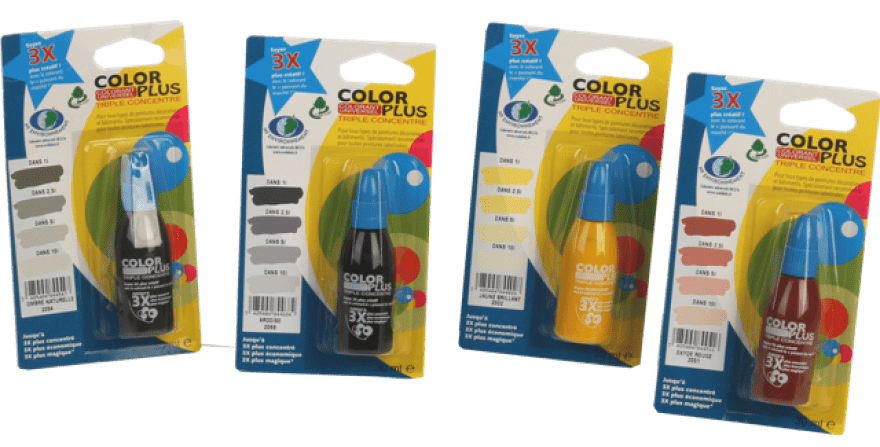Home » California’s Rigid Plastic Packaging Container (RPPC) Act
California’s Rigid Plastic Packaging Container (RPPC) Act

California has long been a pioneer in environmental protection, and its stringent packaging laws are a testament to its commitment to sustainability. Among these regulations, the Rigid Plastic Packaging Container (RPPC) Act stands out as a game-changer. This law not only promotes eco-friendly packaging but also holds manufacturers accountable for reducing packaging waste. In this blog, we will delve into the RPPC Act, exploring its key provisions, impact, and implications for businesses and consumers.
Understanding the RPPC Act
The RPPC Act, enacted in 1991, places specific requirements on manufacturers of rigid plastic packaging containers sold in California. Its primary objective is to minimize packaging waste and promote recycling. Here are the key provisions of the RPPC Act:
Minimum Recycled Content:
One of the fundamental requirements of the RPPC Act is that manufacturers must use a minimum percentage of recycled content in the production of rigid plastic packaging containers. This provision encourages the use of post-consumer recycled materials in packaging, reducing the demand for virgin plastics.
Recycling Symbols:
To enhance recycling efforts and raise consumer awareness, the RPPC Act mandates that qualifying containers bear specific recycling symbols. These symbols provide valuable information to consumers about the recyclability of the packaging.
Compliance and Penalties:
Non-compliant products, those that do not meet the RPPC Act’s requirements, may face penalties. Manufacturers are obligated to ensure that their packaging adheres to the law’s provisions to avoid potential fines and legal repercussions.

Impact on Packaging Sustainability
The RPPC Act has had a profound impact on packaging sustainability in California and serves as a model for other states and regions. Here’s how this law has contributed to a greener and more sustainable packaging landscape:
Encouraging the Use of Recycled Materials:
By mandating a minimum percentage of recycled content in rigid plastic packaging containers, the RPPC Act incentivizes manufacturers to incorporate recycled materials into their products. This reduces the demand for new plastic production and conserves resources.
Promoting Recycling Education:
The requirement for specific recycling symbols on packaging helps educate consumers about proper recycling practices. When consumers see these symbols, they are more likely to participate in recycling programs, diverting more packaging waste from landfills.
Reducing Packaging Waste:
Perhaps the most significant impact of the RPPC Act is its role in reducing packaging waste. By setting recycling standards and encouraging the use of recycled materials, the law minimizes the environmental footprint of packaging.

Implications for Businesses and Consumers
Compliance Challenges for Manufacturers:
Manufacturers operating in California must invest in research, development, and production processes that align with the RPPC Act’s requirements. This may involve sourcing recycled materials, redesigning packaging, and ensuring proper labeling.
Competitive Advantage:
Businesses that proactively comply with the RPPC Act gain a competitive advantage in California’s environmentally conscious market. They can market their products as eco-friendly and responsible choices.
Consumer Empowerment:
Consumers benefit from the RPPC Act through increased awareness of recycling symbols and access to more sustainable packaging options. They can make informed choices that align with their environmental values.
If you are interested in California packaging compliant solutions, then partner with Brown Packaging today to get started.
Supplier contracts can make or break a packaging program. Without the right terms, buyers risk price volatility, missed lead times, and inconsistent product quality. In 2026, negotiating smart contracts is essential for controlling costs, securing reliable supply, and meeting compliance requirements. Why Packaging Contracts Matter Cost stability: Protects against sudden raw material price spikes. Supply security: Ensures availability during peak demand. Quality control: Aligns suppliers with testing and compliance standards. Operational efficiency: Streamlines purchasing and reduces administrative burden. Key Terms Buyers Should Negotiate Volume commitments: Secure better pricing with accurate forecasts. Price adjustment clauses: Define when and how costs can change. Lead times and delivery windows: Avoid shortages and production delays. Testing and compliance: Require ISTA, ASTM, or FSC certification where applicable. Sustainability commitments: Ensure suppliers align with environmental goals. Risks of Weak Contracts Paying inflated prices during market fluctuations. Receiving inconsistent corrugated strength or print quality. Missed shipments leading to costly expedited freight. Difficulty meeting retailer or regulatory compliance. Best Practices for Buyers in 2026 Leverage data: Use past order history to negotiate realistic volumes. Dual sourcing: Maintain backup suppliers for risk management. Annual reviews: Reassess terms to reflect changes in demand and compliance. Collaborative approach: Treat suppliers as partners, not just vendors. Packaging Solutions with Brown Packaging Brown Packaging helps buyers secure strong supplier contracts that balance cost, quality, and supply chain reliability. Our partnerships and industry expertise ensure your packaging program is protected for 2026 and beyond. Contact us to discuss supplier solutions. References Soroka, W. (2009). Fundamentals of Packaging Technology (4th ed.). Institute of Packaging Professionals.Fiber Box Association. (2024). Corrugated Packaging Market Outlook. Retrieved from https://www.fibrebox.orgSustainable Packaging Coalition. (2023). Supplier Standards for Sustainable Packaging. Retrieved from https://sustainablepackaging.org (714)300-0650 request@brownpackaging.com Most Recent Posts: Categories: Corrugated Ecommerce ESD Design Display Flexible Packaging Foam Folding Carton Packaging Plastic Packaging Pouch Printing Protection Retail Rigid Box Thermoform Sustainability Subscribe To Our Newsletter By submitting your information, you agree to our terms and conditions and privacy policy. Custom Packaging Facebook Twitter LinkedIn Pinterest Relevant Posts
Packaging compliance is no longer optional—it’s a requirement for accessing retail shelves, shipping networks, and international markets. In 2026, buyers must navigate evolving regulations around sustainability, labeling, and testing to avoid costly fines, rejected shipments, or damaged customer relationships. Why Compliance Matters in 2026 Retail requirements: Major retailers demand FSC, ISTA, and sustainability certifications. E-commerce standards: Carriers enforce dimensional weight and package testing rules. Global trade: Export packaging must comply with ISPM 15, ASTM, and ISO guidelines. Consumer trust: Transparency in packaging claims impacts purchasing decisions. Key Compliance Areas for Buyers Material sourcing: FSC-certified corrugated and board for sustainability. Labeling standards: GS1-compliant barcodes and accurate product details. Durability testing: ISTA and ASTM protocols for drop, vibration, and compression. Sustainability regulations: Requirements for recyclable or compostable materials. Chemical restrictions: Compliance with FDA, EU, or state-specific standards. Common Compliance Challenges Keeping up with frequent regulatory changes. Managing multiple certifications across suppliers. Balancing compliance with cost-efficiency. Verifying supplier claims for sustainability. Best Practices for Staying Compliant Audit suppliers annually to confirm certification validity. Run internal packaging tests before scaling. Track regulatory updates for each region you ship to. Work with experienced partners who understand industry compliance. Packaging Solutions with Brown Packaging Brown Packaging helps buyers meet 2026 compliance standards with FSC-certified materials, ISTA-tested designs, and regulatory expertise. Our team ensures your packaging meets retailer, carrier, and sustainability requirements. Contact us to keep your program compliant. References Forest Stewardship Council (FSC). (2023). FSC Certification Guidelines for Packaging. Retrieved from https://fsc.orgInternational Safe Transit Association (ISTA). (2023). ISTA Testing Procedures for Transport Packaging. Retrieved from https://ista.orgGS1. (2024). Global Standards for Packaging and Labeling. Retrieved from https://www.gs1.org (714)300-0650 request@brownpackaging.com Most Recent Posts: Categories: Corrugated Ecommerce ESD Design Display Flexible Packaging Foam Folding Carton Packaging Plastic Packaging Pouch Printing Protection Retail Rigid Box Thermoform Sustainability Subscribe To Our Newsletter By submitting your information, you agree to our terms and conditions and privacy policy. Custom Packaging Facebook Twitter LinkedIn Pinterest Relevant Posts
In 2026, sustainability is no longer just a trend—it’s a buyer expectation. Forest Stewardship Council (FSC) certification has become a key benchmark for responsible packaging, signaling that materials are sourced from responsibly managed forests. For packaging buyers, FSC certification is more than a compliance checkbox—it’s a brand value that influences purchasing decisions, retailer acceptance, and customer loyalty. What Is FSC Certification? The Forest Stewardship Council certifies that paper-based packaging materials are sourced from forests managed for environmental responsibility, social benefit, and economic viability. FSC Mix: Packaging contains a blend of FSC-certified and controlled wood. FSC Recycled: Packaging is made entirely from recycled fiber. FSC 100%: Packaging is sourced only from FSC-certified forests. Why FSC Matters to Buyers in 2026 Retail access: Many major retailers now require FSC-certified packaging. Sustainability goals: Aligns with corporate ESG and carbon reduction commitments. Consumer trust: Customers recognize the FSC label and view it as credible. Global compliance: Meets international sustainability regulations. How FSC Certification Strengthens Brand Value Differentiation: Stand out with certified sustainable packaging. Marketing advantage: FSC logos reinforce eco-friendly messaging. Risk reduction: Verified sourcing prevents greenwashing claims. Customer loyalty: Environmentally conscious buyers prefer certified products. Challenges in FSC Implementation Limited supply of certain FSC substrates. Higher costs compared to non-certified materials. Need for supplier audits and documentation. Packaging Solutions with Brown Packaging Brown Packaging partners with buyers to integrate FSC-certified materials into corrugated boxes, folding cartons, and retail packaging. Our solutions support sustainability while maintaining cost efficiency and protection. Contact us to strengthen your brand with FSC-certified packaging. References Forest Stewardship Council (FSC). (2023). FSC Certification Guidelines for Packaging. Retrieved from https://fsc.orgSustainable Packaging Coalition. (2023). Consumer Insights on Sustainable Packaging. Retrieved from https://sustainablepackaging.orgSoroka, W. (2009). Fundamentals of Packaging Technology (4th ed.). Institute of Packaging Professionals. (714)300-0650 request@brownpackaging.com Most Recent Posts: Subscribe To Our Newsletter By submitting your information, you agree to our terms and conditions and privacy policy. Sustainable Packaging Facebook Twitter LinkedIn Pinterest Relevant Posts
Sustainability is now a top priority for packaging buyers. Retailers, regulators, and consumers are all demanding packaging solutions that reduce environmental impact without sacrificing performance. In 2026, buyers must balance eco-friendly materials, cost, and compliance to build programs that are both effective and future-ready. What Buyers Need to Know About Sustainable Packaging Regulatory pressure: Governments are enforcing stricter rules on recyclability and plastic use. Retail mandates: FSC certification and recyclable packaging are becoming standard requirements. Consumer expectations: Customers increasingly choose brands with visible sustainability commitments. Sustainable Material Options Recycled corrugated: High recycled content while maintaining compression strength. Compostable films: Suitable for select food and retail applications. Molded pulp inserts: Replace foam or plastic for protective packaging. Water-based coatings: Enhance moisture resistance without harmful chemicals. Balancing Cost and Performance Right-size packaging: Reduces material waste and shipping costs. Hybrid solutions: Combine eco-materials with corrugated for balance. Life cycle analysis: Evaluate true environmental impact, not just marketing claims. How to Evaluate Sustainable Suppliers Verify FSC, SPC, or ISO certifications. Request testing data for durability and recyclability. Audit supply chains for consistency and transparency. Ensure claims meet local and international compliance standards. Packaging Solutions with Brown Packaging Brown Packaging helps buyers implement sustainable packaging programs that balance cost, performance, and compliance. From recycled corrugated to eco-friendly coatings and inserts, we deliver solutions that meet 2026 sustainability goals. Contact us to explore sustainable packaging options. References Forest Stewardship Council (FSC). (2023). FSC Certification Guidelines for Packaging. Retrieved from https://fsc.orgSustainable Packaging Coalition. (2023). Packaging Sustainability Trends and Buyer Insights. Retrieved from https://sustainablepackaging.orgSoroka, W. (2009). Fundamentals of Packaging Technology (4th ed.). Institute of Packaging Professionals. (714)300-0650 request@brownpackaging.com Most Recent Posts: Categories: Corrugated Ecommerce ESD Design Display Flexible Packaging Foam Folding Carton Packaging Plastic Packaging Pouch Printing Protection Retail Rigid Box Thermoform Sustainability Subscribe To Our Newsletter By submitting your information, you agree to our terms and conditions and privacy policy. Sustainable Packaging Facebook Twitter LinkedIn Pinterest Relevant Posts
Choosing the right packaging material is one of the most important decisions buyers face. Single-material packaging offers simplicity and recyclability, while multi-material designs provide enhanced performance and protection. Understanding the trade-offs helps companies balance cost, functionality, and sustainability goals in 2026. What Is Single-Material Packaging? Single-material packaging uses one substrate—such as corrugated board, folding carton, or plastic—for the entire structure. Advantages: Easier to recycle and dispose. Lower material costs in many cases. Streamlined sourcing and inventory. Supports sustainability messaging. Disadvantages: Limited barrier protection. Less customization for fragile or complex products. May require added thickness for strength, increasing weight. What Is Multi-Material Packaging? Multi-material packaging combines two or more substrates—such as corrugated with foam, or paperboard laminated with film—to achieve specific performance outcomes. Advantages: Greater protection against moisture, oxygen, and impact. Allows for premium finishes and enhanced graphics. Ideal for fragile or high-value products. Customizable for unique supply chain conditions. Disadvantages: More difficult to recycle due to material separation. Higher cost and longer lead times. Complex sourcing and inventory management. When to Use Each Approach Single-material packaging: Best for products with low fragility, strong sustainability requirements, or cost-driven programs. Multi-material packaging: Best for high-value, fragile, or regulated products requiring advanced protection. Balancing Performance and Sustainability Buyers must weigh performance needs against eco goals: Use recyclable coatings to extend single-material performance. Choose hybrid designs that separate easily for recycling. Apply multi-material solutions only where risk of damage outweighs cost. Packaging Solutions with Brown Packaging Brown Packaging helps buyers evaluate when to use single- vs. multi-material packaging. Our team balances sustainability, performance, and cost to deliver solutions tailored to your supply chain. Contact us to explore the right approach for your products. References Forest Stewardship Council (FSC). (2023). FSC Packaging Certification Guidelines. Retrieved from https://fsc.orgSoroka, W. (2009). Fundamentals of Packaging Technology (4th ed.). Institute of Packaging Professionals.Sustainable Packaging Coalition. (2022). Design for Recyclability and Multi-Material Packaging Report. Retrieved from https://sustainablepackaging.org (714)300-0650 request@brownpackaging.com Most Recent Posts: Categories: Corrugated Ecommerce ESD Design Display Flexible Packaging Foam Folding Carton Packaging Plastic Packaging Pouch Printing Protection Retail Rigid Box Thermoform Sustainability Subscribe To Our Newsletter By submitting your information, you agree to our terms and conditions and privacy policy. Custom Packaging Facebook Twitter LinkedIn Pinterest Relevant Posts
One of the biggest challenges in sustainable packaging is balancing environmental responsibility with product protection. Buyers often worry that switching to eco-friendly materials means sacrificing durability or driving up costs. In 2026, new material technologies allow brands to meet sustainability goals without compromising strength or supply chain performance. Why Protection Still Matters Damaged products create more waste than packaging ever could. Returns increase logistics costs and carbon emissions. Retailers and e-commerce platforms expect packaging to deliver both sustainability and reliability. Eco-Friendly Material Options Recycled corrugated: Maintains stacking strength while reducing virgin fiber use. Molded pulp inserts: Cushion fragile items while replacing plastic foam. Water-based barrier coatings: Add moisture resistance without plastic films. Compostable films: Ideal for short shelf-life or single-use applications. Paper-based mailers: Replace poly mailers for e-commerce shipments. How to Balance Eco Goals and Protection Use right-sizing to reduce material volume while improving fit. Apply hybrid solutions (corrugated + pulp) for high-value goods. Conduct ISTA testing to validate protective performance. Match material choice to product fragility and supply chain conditions. Examples in Action Electronics: Molded pulp trays replacing EPS foam. Food and beverage: FSC-certified corrugated with recyclable coatings. Retail e-commerce: Recycled paper mailers protecting apparel. Packaging Solutions with Brown Packaging Brown Packaging develops eco-friendly solutions that protect products while meeting sustainability requirements. From recycled corrugated to innovative coatings, our team ensures you never trade protection for environmental impact. Contact us to explore eco-material options. References Forest Stewardship Council (FSC). (2023). FSC Certification Guidelines for Packaging. Retrieved from https://fsc.orgSustainable Packaging Coalition. (2023). Eco-Friendly Packaging Materials and Case Studies. Retrieved from https://sustainablepackaging.orgASTM International. (2023). ASTM D4169: Standard Practice for Performance Testing of Shipping Containers and Systems. (714)300-0650 request@brownpackaging.com Most Recent Posts: Subscribe To Our Newsletter By submitting your information, you agree to our terms and conditions and privacy policy. Custom Packaging Facebook Twitter LinkedIn Pinterest Relevant Posts
Home » California’s Rigid Plastic Packaging Container (RPPC) Act

Tariffs can create significant challenges for packaging buyers, affecting costs, supply chains, and sourcing strategies. While tariffs are designed to promote domestic production, they often introduce complexities that impact businesses relying on imported materials. With thoughtful planning and strategic actions, packaging buyers can minimize these impacts and maintain operational efficiency. Understanding the Impact of Tariffs on Packaging Tariffs impose additional taxes on imported goods, driving up the costs of raw materials and finished packaging products. For the packaging industry, this includes commonly used materials such as corrugated cardboard, plastics, and metals. These added expenses often lead to higher procurement costs, supply chain adjustments, and increased administrative burdens. Strategies to Limit the Impact of Tariffs Reevaluate Your Supply Chain The first step to reducing the impact of tariffs is gaining a clear understanding of your current supply chain. Knowing where your materials and packaging products originate helps identify risks and areas for improvement. Key Steps: Map out your supply chain to identify dependencies on imported goods. Identify tariff-affected materials and evaluate their contribution to your costs. Explore local or alternative suppliers to reduce reliance on imports. Strengthen Relationships with Domestic Suppliers With tariffs increasing the cost of imports, domestic sourcing becomes a more attractive option. Building strong partnerships with local suppliers can help secure reliable and affordable packaging. Actionable Tips: Establish long-term contracts to lock in pricing and secure priority access. Collaborate with domestic manufacturers to explore custom solutions tailored to your needs. Consider working with regional distributors for quicker lead times and reduced shipping costs. Diversify Your Supplier Base Relying heavily on one supplier or region can expose your business to greater risks when tariffs are introduced. Diversifying your supplier network provides flexibility and reduces vulnerability. Implementation Steps: Source from multiple domestic suppliers to mitigate potential shortages. Evaluate international suppliers in tariff-free regions for cost-effective alternatives. Work with packaging distributors who offer access to a variety of options. Optimize Packaging Design Innovative packaging design can help reduce material usage and overall costs, minimizing the financial impact of tariffs. Design Adjustments: Lightweighting: Use thinner or lighter materials to lower costs. Right-Sizing: Tailor box sizes to reduce material waste and shipping costs. Mono-Material Solutions: Simplify designs to use fewer or single types of materials. Explore Alternative Materials Switching to tariff-free or domestically sourced materials can provide significant savings. Examples: Transition from virgin paperboard to recycled corrugated materials. Use kraft paper or mailers as cost-effective alternatives to plastic-based packaging. Evaluate the feasibility of biodegradable or compostable materials that align with sustainability goals. Plan Ahead and Stockpile Strategically Tariffs often lead to increased lead times, especially as demand for domestic suppliers grows. Proactive planning ensures you’re prepared for potential disruptions. Practical Steps: Forecast demand to order packaging materials in advance of tariff changes. Stockpile critical materials with long shelf lives to avoid shortages. Develop an inventory management system to balance stock levels and avoid overstocking. Negotiate Pricing and Payment Terms Work with your suppliers to manage tariff-related cost increases effectively. Negotiation Tips: Request volume discounts for bulk orders. Negotiate extended payment terms to ease cash flow pressures. Explore opportunities for bundled services to reduce overall costs. Leverage Technology for Supply Chain Efficiency Investing in technology can improve decision-making and streamline procurement processes, helping mitigate the administrative burden of tariffs. Recommended Tools: Supply Chain Management Software: Monitor supplier performance and optimize sourcing strategies. Tariff Calculators: Assess the impact of tariffs on your materials and products. Inventory Management Systems: Improve forecasting accuracy and avoid last-minute purchases. Long-Term Benefits of Adapting to Tariffs While tariffs can create short-term challenges, they also encourage businesses to adopt resilient and innovative strategies. By optimizing supply chains, exploring sustainable options, and strengthening relationships with domestic suppliers, packaging buyers can position themselves for long-term success. Conclusion Tariffs on packaging can introduce complexities, but with proactive planning and strategic adjustments, their impact can be minimized. By reevaluating supply chains, optimizing packaging designs, diversifying suppliers, and leveraging technology, packaging buyers can navigate these changes effectively while maintaining operational efficiency. Taking these steps now can help businesses adapt to a changing landscape and thrive in a competitive market. (714)300-0650 request@brownpackaging.com Most Recent Posts: Categories: Corrugated Ecommerce ESD Design Display Flexible Packaging Foam Folding Carton Packaging Plastic Packaging Pouch Printing Protection Retail Rigid Box Thermoform Sustainability Subscribe To Our Newsletter By submitting your information, you agree to our terms and conditions and privacy policy. Custom Packaging Facebook Twitter LinkedIn Pinterest Relevant Posts

In the current competitive retail landscape, the packaging of a product plays an increasingly significant role in customer decision-making. Brands are progressively realizing the power of packaging as a communication tool. Among the many forms of packaging available, blister packs stand out as a popular choice for several reasons. They strike a balance between product visibility, protection, and cost-effectiveness, hence the growing demand across various industries. Defining Blister Packs: A Quick Overview Blister packs, also mistaken as clamshell packaging, are pre-formed plastic packaging solutions that seal the product against a cardboard backing or another plastic component. This type of packaging is widely used for small consumer goods, pharmaceuticals, and medical devices. Their design is purposefully transparent to showcase the product within, offering potential buyers a clear view of what they’re about to purchase. Increased Product Visibility: The Window to Purchase Decision Showcasing Product Quality One of the most significant advantages of blister packs is the transparency that allows customers to view the product directly. With the rise of informed consumers, the ‘see before you buy’ concept has never been more crucial. By providing an unobstructed view, blister packs instill confidence in the product, as consumers can verify the product’s condition and quality firsthand. Highlighting Product Features Through a blister pack’s clear plastic cover, brands have the opportunity to highlight the most critical product features. This visual promotion can be a game-changer, particularly for products with unique design elements or accessories that the company wants to emphasize. Deterring Product Tampering Product visibility also plays a vital role in preventing tampering. With blister packs, any signs of interference are easily recognizable, thus providing an additional layer of assurance to customers about the product’s integrity. Superior Product Protection: Ensuring Safety and Longevity Resistance to External Factors Blister packs provide superior protection against numerous external factors such as moisture, light, and temperature changes, making them suitable for products sensitive to such conditions, like pharmaceuticals and electronics. Enhancing Product Life Blister packs are designed to be tough and durable. The rigid plastic housing protects the product from mechanical damage during transport or in-store handling, thereby extending the product’s shelf life and ensuring it reaches the consumer in its best state. Improved Tamper Evident Packaging As previously mentioned, blister packs deter tampering. However, they also serve as excellent tamper-evident packaging. If the package is opened or damaged, it is immediately noticeable, allowing both the seller and the buyer to be assured of the product’s untouched condition. Balancing Cost-effectiveness and Environmental Concerns While the benefits of product visibility and protection are undeniable, it’s essential to highlight that blister packs are also cost-effective and can be designed with environmental concerns in mind. Economical Production and Versatility The production process for blister packs is relatively economical, making them an affordable option for many businesses. The versatility of blister packaging, fitting a wide range of products, also contributes to its cost-effectiveness. Eco-friendly Options In addition to traditional blister packs, some companies are now offering eco-friendly alternatives known as “trap packs.” Trap packs are designed with sustainability in mind, using recycled materials or materials that are easier to recycle. PET (Polyethylene Terephthalate) and RPET (Recycled Polyethylene Terephthalate) are commonly used due to their high recyclability. These eco-conscious trap packs provide the same level of visibility and protection while minimizing their environmental impact. Conclusion: The All-Round Packaging Solution Blister packs have proven their value in the world of product packaging. By boosting visibility and offering superior protection, these packs are instrumental in driving purchase decisions while ensuring products reach consumers in optimal condition. As eco-friendly options like trap packs become more widely available, blister packs are positioned to remain a popular choice for packaging needs in the foreseeable future. If you are interested in blister packs, then partner with Brown Packaging today to get started. (714)300-0650 request@brownpackaging.com Most Recent Posts: Categories: Corrugated Ecommerce ESD Design Display Flexible Packaging Foam Folding Carton Packaging Plastic Packaging Pouch Printing Protection Retail Rigid Box Thermoform Sustainability Subscribe To Our Newsletter By submitting your information, you agree to our terms and conditions and privacy policy. Blister Packaging Facebook Twitter LinkedIn Pinterest Relevant Posts

In the world of product manufacturing and retail, packaging plays a crucial role in protecting products, attracting consumers, and conveying brand messages. Among the various types of packaging, primary packaging holds a special place as it is the first and most direct form of packaging around a product. This blog post aims to explore the concept of primary packaging, its importance, and its various forms. What is Primary Packaging? Primary packaging is the material that first envelops the product and holds it. This type of packaging is in direct contact with the product itself and is often the last to be opened by the consumer before using the product. It serves several critical functions, from protecting the product to providing consumer information and aiding in marketing efforts. The Role of Primary Packaging Protection: The most fundamental role of primary packaging is to protect the product from damage, contamination, and tampering. It ensures the product remains intact and safe for use from the production line until it reaches the consumer. Preservation: For many products, especially food items and pharmaceuticals, primary packaging plays a crucial role in preserving the quality and extending the shelf life of the product by providing barriers to moisture, light, and air. Information and Compliance: Primary packaging is a key medium for conveying necessary product information, instructions for use, ingredients or contents, and compliance with regulatory requirements. Branding and Marketing: Often the first thing a consumer interacts with, primary packaging is an important branding tool. Its design, colors, and materials can significantly influence purchasing decisions and brand perception. Types of Primary Packaging Primary packaging can vary greatly depending on the product. Common types include: Bottles and Jars: Used for liquids and creams in the beverage, beauty, and pharmaceutical industries. Boxes and Cartons: Often used for electronics, cosmetics, and house hold items. Flexible Packaging: Such as pouches or bags, commonly used for snacks, grains, and frozen foods. Blister Packs: ideal for medical devices and electronics. Tubes: For semi-solid products like toothpaste or certain food items. Materials Used in Primary Packaging The choice of material for primary packaging is determined by the product’s needs and includes: Plastics: Versatile and widely used, suitable for a range of products. Glass: Preferred for its non-reactive nature, especially for food and pharmaceuticals. Metal: Often used for its durability and protective qualities. Paper and Cardboard: Commonly used for their recyclability and lightweight properties. Design Considerations in Primary Packaging Designing primary packaging requires a balance between functionality and aesthetics. It should be user-friendly, secure, and aligned with the brand’s identity. Additionally, sustainable design practices are increasingly important to reduce environmental impact. Innovation and Trends in Primary Packaging The primary packaging sector is seeing innovations like smart packaging, which includes the use of QR codes and RFID technology, and sustainable alternatives like biodegradable materials and minimalist designs. If you are interested in primary packaging, then partner with Brown Packaging today to get started. (714)300-0650 request@brownpackaging.com Most Recent Posts: Categories: Corrugated Ecommerce ESD Design Display Flexible Packaging Foam Folding Carton Packaging Plastic Packaging Pouch Printing Protection Retail Rigid Box Thermoform Sustainability Subscribe To Our Newsletter By submitting your information, you agree to our terms and conditions and privacy policy. Custom Packaging Facebook Twitter LinkedIn Pinterest Relevant Posts


